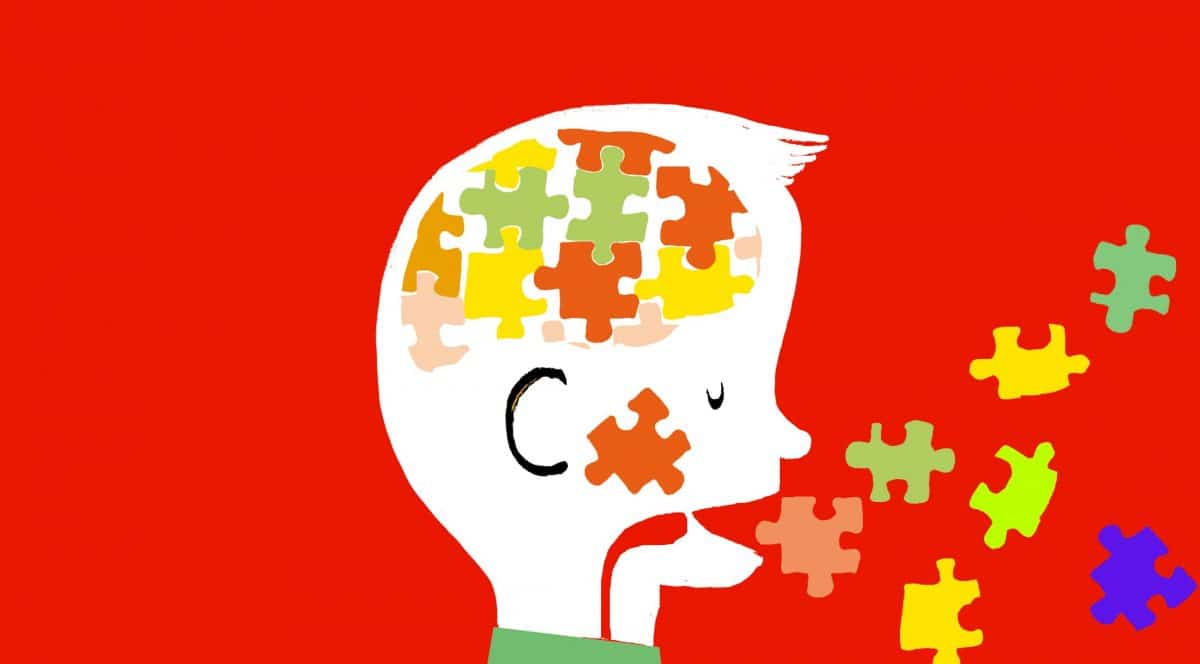
If your child soliloquies, that is, talks to himself, don't worry too much. At certain ages it is, in addition to common, necessary. And it is that soliloquies are a tool to solve problems. Private speech plays a positive role in children's normal cognitive development. We are going to talk to you about these issues today, and how you can act as a mother.
On the other hand, especially, boys and girls with Down syndrome rely on soliloquy as a means of venting, sadness, frustration and isolation. At least this is what various studies indicate. It is tremendously useful for them. They tend to think aloud to process the events of everyday life.
The soliloquy from the perspective of psychology

From the point of view of psychology, soliloquy can be explained in two ways in adulthood: it has some kind of disorder or it is someone who is isolated and needs to express ideas out loud. This is at least what happens in adults, but soliloquies are frequent in children, especially during the stage of the appearance of the languagee.
There are children who believe imaginary friends when they are not close to playmates, and they have conversations with them, which can seem or be soliloquies. But the child does not perceive them as such. Sometimes the soliloquies are accompanied by maladaptive or abnormal behaviors, with a certain autistic sway. In these cases the soliloquy is taken as part of the symptoms of a major pathology.
Vygtosky, a Russian psychologist, described a close link between social experience, speech, and learning. In fact the urge to speak alone never goes away. At any time that you, or your child is faced with unusual situations or absorbing activities, it will tend to resurface. In any case, of adults or children, in a soliloquy there is a reflective component.
The habit of soliloquies in the child

If you watch your child speak to himself It does not mean mental instability, nor is it a sign of disobedience or distraction. Therefore, a child should not be reprimanded when he or she speaks aloud and alone. Soliloquy helps children direct their own behavior, cope in unusual situations and, as we have said before, acquire new skills.
According to various studies on soliloquies, which have proliferated since the 80s, middle-class children speak aloud to themselves with a increasing frequency between 4 and 6 years of age. During elementary school, the soliloquy appears as inaudible murmuring. At age 10, more than 40% of your private speech is still perceptible.
Many times when a child faces a new task recites those aspects of the problem aloud that are more incomprehensible to him. As they gain in capacity, private speech becomes inaudible murmuring. When he has already exercised, the child learns to do cognitive operations in a low voice, and then go into silence.
How to act like a mother when talking to your child alone

As the soliloquy has been said constitutes a tool for problem solving. Especially for those boys and girls who grow up in enriching and socially interactive environments. The child incorporates the language he hears from the elders into his own dialogue.
Listening to the soliloquies of your children, the ones they keep with themselves or with their imaginary friends, you can get more information about their plans, goals and difficulties. It will be easier for them to freely express what they want by not feeling questioned. If, for their age, they resort too much to private speech, surely they are demanding additional support and guidance.
Laura E. Berk and Ruth A. Garvin conducted a study with children between 5 and 10 years old in which they corroborate that self-orientation is the main function of the soliloquy. Children talked to themselves more often when they were working alone on complicated tasks that their teachers could not help them with immediately. Soliloquies decrease as performance increases.